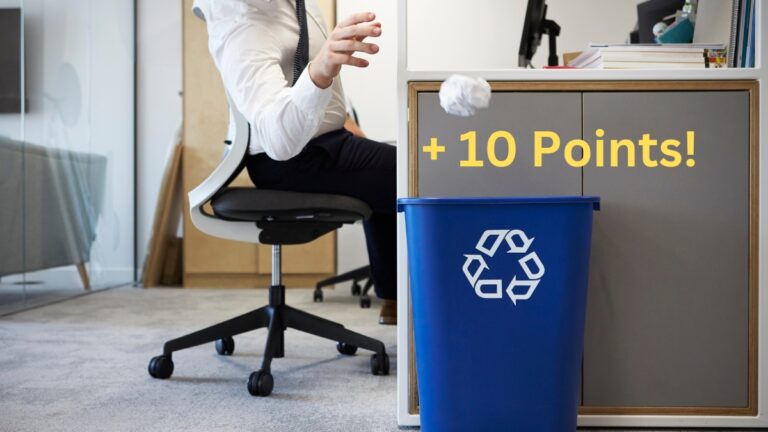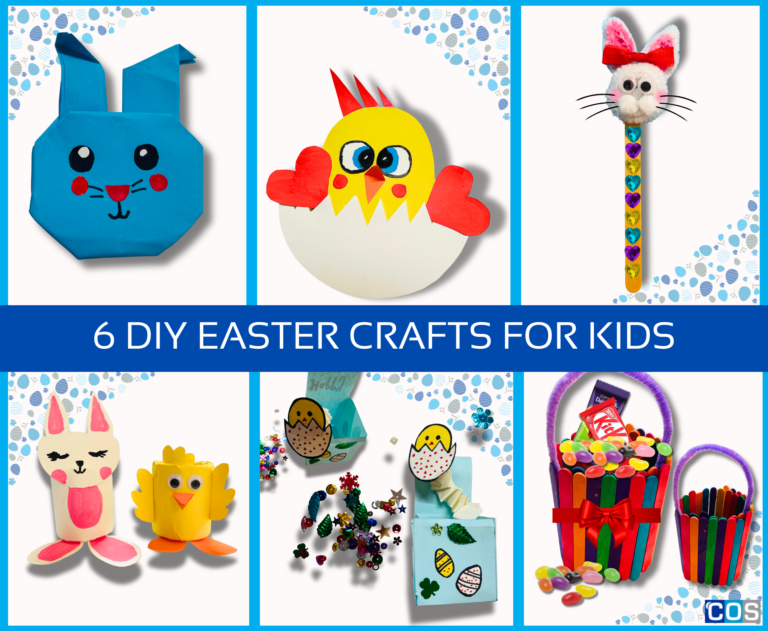As a core concept, gamification is the process of incorporating game elements and mechanics into non-game contexts, such as work, education, or health, to engage and motivate people to perform tasks they may otherwise avoid or delay.
By applying principles commonly found in games, such as challenges, rewards, competition, and progression, gamification aims to make tasks more enjoyable and compelling, ultimately encouraging desired behaviours and driving engagement.
Basic examples of gamification concepts include earning points or badges for completing tasks, competing with others on leaderboards, and unlocking levels or achievements. This approach leverages intrinsic human motivations, such as a desire for achievement, recognition, and the drive to win, to enhance motivation and foster a sense of accomplishment.
Gamification has been increasingly utilised across many industries to improve employee performance, enhance learning outcomes, promote healthy behaviours, and increase customer engagement.
Now gamification is being used to help save the environment and cut down on greenhouse gasses.
Gamification of Rubbish
Nobody particularly likes sorting rubbish into different kinds of recyclables, making sure food containers a clear of food scraps, and making sure that the wrong sort of plastic doesn’t wind up in the recycling bin. It’s not a job most people seek out, but it is one that can made much more appealing using gamification.
In 2023, in an effort to improve overall waste disposal and recycling rates, Belgium introduced a new gamified system called “De Click”, an app that rewards users for correctly disposing of waste. When a De Click user correctly disposes waste, they are rewarded with vouchers, known as “Circular Ucoins” that can be redeemed at partner vendors.
While Australia doesn’t have something like this planned on a national scale that doesn’t mean that individual organisations can’t find their own ways to gamify proper waste management in order to increase waste diversion and sustainability initiatives.
Methods of Gamifying Waste Management
So how can an organisation go about gamifying waste management? Exactly how an organisation goes about adding game elements to their environmental messaging can differ, but the following techniques can help lend structure to the game framework, making them more approachable and familiar to participants.
Points
Implement a points system in the gamification of waste management and sorting can help incentivise sustainable behaviours among employees. A base use of points can involve employees earning points for correctly sorting waste into recycling, compost, and landfill bins. Bonus points could be awarded for exceeding waste reduction targets or participating in educational activities.
Awarded points could be redeemed for rewards, such as gift cards, extra time off, or workplace perks as well as bragging rights. To showcase top performers and encourage friendly competition between employees or departments, organisations can create leaderboards.
To enhance engagement and spur excitement about earning points, businesses could introduce challenges or themed events where employees compete for points by achieving specific waste reduction goals. Regular updates on individual and team progress can be shared to maintain momentum and drive participation.
A points-based system can serve as the basis for other gamification techniques, offering a base award and recognition system that pretty much everyone will be familiar with.
Education
By combining gamification with educational initiatives, organisations can create a dynamic and engaging approach to waste management that promotes environmental literacy without the need for boring meetings or presentations.
Incorporate interactive quizzes or trivia games into the gamified system in which participants earn points or rewards for correctly answering questions about recycling guidelines, composting techniques, and the environmental impact of waste can be a powerful tool for raising awareness and promoting sustainable behaviours among employees.
Organisations may still need to host workshops or training sessions focused on waste reduction strategies and best practices to empower employees with the knowledge and skills needed to effectively sort waste and minimize their environmental footprint. Including quizzes, points and prizes in these sessions can help transform what may otherwise be a dull lecture into a fun, interactive event.
Providing regular updates and feedback on waste diversion efforts can serve as a form of ongoing education. Sharing statistics on waste reduction achievements and highlighting success stories can inspire employees to continue their sustainability efforts.
The integration of educational materials into the workplace environment, such as signage, posters, and digital displays, can serve as rules for the game and reinforce key messages about waste management and encourage employees to make informed choices.
Interactive Elements
Interactive elements can play a crucial role in enhancing engagement and participation in a gamified waste management system by creating a dynamic and engaging waste management system that encourages active participation.
A prime example of an interactive feature is the use of digital displays or mobile applications that provide real-time feedback on waste sorting efforts, allowing employees to track their progress and see how their actions contribute to overall waste reduction goals.
Another potential interactive element is the incorporation of challenges or quests that encourage employees to complete specific waste management tasks, such as organising a recycling drive or participating in a composting workshop within a timeframe. Interactive elements can also include the educational modules or quizzes discussed earlier.
Rewards
While in boardgames or videogames, the experience of playing or bragging rights for winning can often be reward enough, but when it comes to the gamification of something that would otherwise be seen as a chore, mor tangible rewards are often needed.
Implementing a rewards system for gamified waste management can incentivise employee participation. The points or tokens that employees have won for their waste management and sorting actions, participating in educational activities, or achieving waste reduction goals can then be redeemed for rewards. Offering a tangible prize rewards the winner and can motivate others to work harder in the next “round”.
Example rewards may include gift cards to local businesses or online retailers, extra paid time off, recognition in company newsletters or meetings, eco-friendly merchandise such as reusable water bottles or tote bags, or even special privileges like preferred parking spots or access to wellness programs. Organisations could also consider offering team or department-based rewards, such as team outings or lunch gatherings, to encourage collaboration and camaraderie in waste management efforts while still fostering a sense of friendly competition.
The Zero Waste Initiative
As part of our drive to limit landfill waste and boost workplace sustainability, COS is launching what we call the Zero Waste Initiative, a campaign to change the way organisations approach waste management. Rather than having under desk bins and hoping that the cleaners will put the garbage in the right bin at the end of the day, the Zero Waste Initiative instead focusses on clearly labelled bins set in a centralised location.
Centralising bins encourages everyone to become more proactive in their waste sorting, placing waste in the correct bins when needed instead of just throwing it into the nearest bin.
We’ve partnered with two Australian companies, Method Recycling and Source Separation Systems to make centralised waste management and sorting easier.
Method Recycling
Dedicated to transforming workplaces into sustainable environments through their innovative recycling solutions, Method Recycling combines IoT technology with elegant bins made from recycled materials. Their mission is to enable any space to waste less and recycle more in a visually appealing way.
Method combines cutting-edge waste data technology with beautifully designed bins to simplify recycling, aiming for a cleaner, greener planet. Method bins feature brightly coloured lids to make it clear which bin if for what waste but can also be combined with InSight weight sensors beneath each bin.
These sensors give granular waste data at close to real time. This information is collated and accessible through an API, giving details such as the weight of individual types of waste placed in bins, the hours of the day that see the most waste being disposed of, and how much waste is being diverted from landfill.
InSight sensors are wireless and features a removable, rechargeable battery pack. Battery packs can power an InSight senser for around six months, meaning that Method bins can be used anywhere a bin is needed.
Using hourly waste data, organisations can identify isolated events and ongoing issues, and this data can then be used to target education around waste diversion and create accountability for how much and when waste is being generated. The data can be easily used to set up leaderboards making the gamification of waste sorting easy and visually exciting.
Source Separation Systems
Source Separation Systems specialise in creating waste management solutions that make being sustainable easy and convenient, from composting systems to commercial recycling solutions. Dedicated to providing practical, effective systems that fit into every space, Source Separation Systems can customise the size, look and form of bins to suit any space, from a small office to a massive University campus.
Source Separation Systems bins are made from recycled materials sourced from the local area, and also offers a wide range of complementary products, including e-waste stations, battery recycling stations, disposable coffee cup bins and coloured bin liners
By centralising waste management and incentivising employees to properly dispose of different forms of waste through gamification, competition and reward can help organisations achieve their sustainability goals. The better sorted office waste becomes, the more waste is diverted from landfill and the fewer greenhouse gasses are released into the air. That’s an outcome in which everyone wins.

